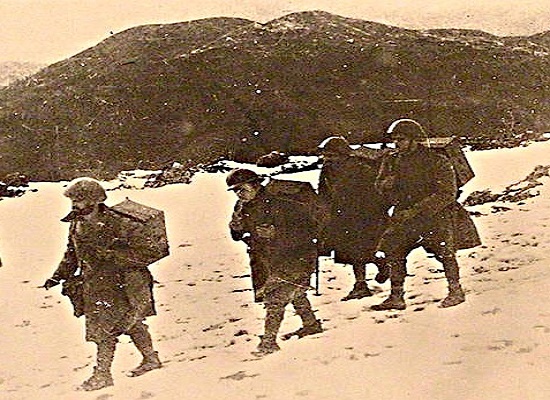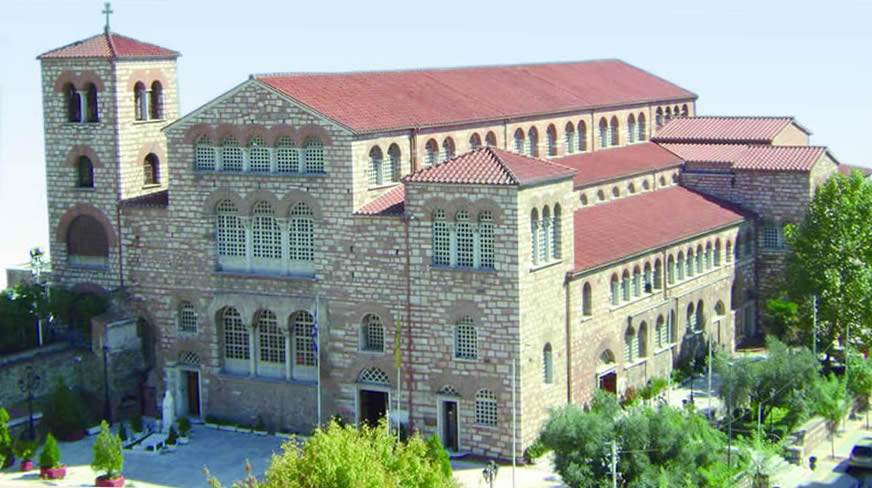
25-10-16 Nikos Filis’ marks 28 October anti-fascist struggle with unity message
Minister of Education, Research, and Religious Affairs Nikos Filis has sent a message to teachers and students marking the commemoration of the October 28 national holiday.
Dear students and educators,
The October 28 anniversary is the par excellence opportunity to remember the unity and concord and decisive resistance of our people against fascism. The “No” uttered then was the distillate of the decision of the entire Greek people to resist the expansionist push of Italy and the Axis powers. But it was also the distillate of the decision of the people to resist fascism.
It was a war in which everyone participated: men and women, young and old – everyone – offered from their own vantage point whatever they could. The entire people were united, devoted to a single, common aim, the decision to claim victory.
The War of 1940 was one of those rare historical moments in which the dedication to the objective pushes differences aside, and in which hope vanquishes fear. It was one of those moments in which the common good is raised above piecemeal interests. The sentiment that prevails in such periods is one of communion – that magnanimous feeling that anything is possible, that everything can change. At such times life becomes a celebration, sacrifices are imbued with meaning, and problems give way to dreams.
That sentiment did not last forever. The occupation came and divisions returned, in new forms and shapes. Then came the Civil War. However, it is important to maintain the dynamic borne of that moment of unity. It is a dynamic that is not false, which can transform into a true force of victory.
The commemoration of the 28 October anniversary had already been established in the years of Occupation, with school and university students, and young working men and women at the forefront. It took the form of a resistance to fascism, with the decisive contribution of the youth, and the first demonstrations with protesters shot dead by Italian gunfire in 1942.
Honouring the epic deeds of 28 October, we must not forget that it was mainly a war of resistance against fascism. The resistance in Greece was part of a broader anti-fascist struggle in Europe.
The spectre of fascism appears once again to be threatening Europe. It does so in a different way of course, such as xenophobia and racism, which poison our daily lives. Once again both our country and all of Europe are obliged to say a resounding ‘No’.

Message for the 28 October commemoration in Thessaloniki
Dear students and teachers,
In Thessaloniki today we celebrate three anniversaries. We celebrate the 28 October anniversary, but we also celebrate the two liberations of the city, that of 1912 and that of 1944.
The first liberation, from the Ottoman Empire, coincides with the feast day of the patron saint of the city, Saint Demetrios. On 26 October, 1912, a thriving city of antiquity and Byzantium that was one of the first Christian communities, was incorporated into the modern Greek state and played a leading role in its history. That anniversary has been honoured with panegyrics and te deums for many years.
For the other anniversary, however, that of 1944, a silence prevailed. It was a silence deeply linked to the wounds of the city. Thessaloniki is a martyric city, which during the Occupation lost one quarter of its population to the [Nazi] annihilation camps. These were Greek citizens of the Jewish religion, the memory of whom only recently has begun to be restored.
In addition, Thessaloniki is the city that suffered more than any other from the organised activities of collaborators. But it is also the city in which the resistance developed from the first days of the Occupation, whose intelligentsia was present in the battle against fascism, and which was administered by resistance forces for a time when the Nazi troops withdrew. That memory of the city is no longer silenced.
The October 28 anniversary is the par excellence opportunity to remember the unity and concord and decisive resistance of our people against fascism. The “No” uttered then was the distillate of the decision of the entire Greek people to resist the expansionist push of Italy and the Axis powers. But it was also the distillate of their decision to resist fascism.
It was a war in which everyone participated: men and women, young and old – everyone – offered from their own vantage point whatever they could. The entire people were united, devoted to a single, common aim, the decision to claim victory.
The War of 1940 was one of those rare historical moments in which the dedication to the objective pushes differences aside, and in which hope vanquishes fear. It was one of those moments in which the common good is raised above piecemeal interests. The sentiment that prevails in such periods is one of communion – that magnanimous feeling that anything is possible, that everything can change. At such times life becomes a celebration, sacrifices are imbued with meaning, and problems give way to dreams.
That sentiment did not last forever. The occupation came and divisions returned, in new forms and shapes. Then there came the Civil War. However, it is important to maintain the dynamic borne of that moment of unity. It is a dynamic that is not false, which can transform into a true force of victory.
The commemoration of the 28 October anniversary had already been established in the years of Occupation, with school and university students, and young working men and women at the forefront. It took the form of a resistance to fascism, with the decisive contribution of the youth, and the first demonstrations with protesters shot dead by Italian gunfire in 1942.
Honouring the epic deeds of 28 October, we must not forget that it was mainly a war of resistance against fascism. The resistance in Greece was part of a broader anti-fascist struggle in Europe.
The spectre of fascism appears once again to be threatening Europe. It does so in a different way of course, such as xenophobia and racism, which poison our daily lives. Once again both our country and all of Europe are obliged to say a resounding ‘No’.
The Greek-language texts of Nikos Filis’ general message for the 28 October national holiday and, secondly, the particular message for the Thessaloniki celebration are available at the links below:
